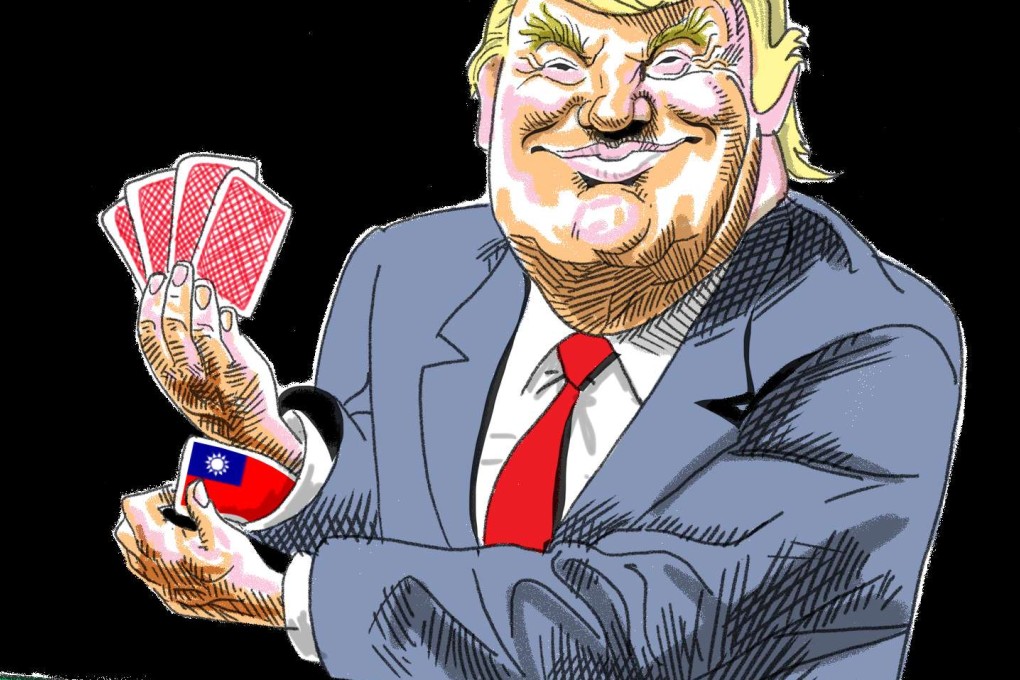Is Taiwan the trump card in Sino-US relations?
Wenran Jiang says as shocking as Donald Trump’s challenge to the decades-old US stance may seem, Washington’s military and commercial interests in Taiwan could well play a role


After a carefully coordinated call with President Tsai Ing-wen of Taiwan, Trump now claims his administration may not be “bound by a ‘one-China’ policy unless we make a deal with China having to do with other things, including trade”.
Watch: Beijing says Trump call was “petty action” by Taiwan
From the Trans-Pacific Partnership (TPP) to the Paris climate deal, Trump has targeted many of President Barack Obama’s signature policies, but his sharpest attacks on a foreign country have focused on China. His accusations range from “raping America,” “currency manipulator,” “greatest jobs theft in history,” “unfair taxes on our companies” and military build-up in the South China Sea, to not helping the US at all on North Korea.

‘I don’t know why we have to be bound by a one-China policy’: Trump questions decades-long stance
Surprising as his comments might seem, Trump’s China policy orientation has its roots in the Obama administration. Obama pursued the “pivot to Asia”, a strategic “rebalancing” of US interests from Europe and the Middle East towards East Asia, as advocated by then secretary of state Hillary Clinton. The US strengthened its military alliance with Japan and South Korea, announced the deployment of the THAAD anti-missile system in the Korean peninsula, stepped up military cooperation with Australia and the Philippines, improved relations with Vietnam and India, and repeatedly sent its navy and air force to the South China Sea – all viewed by Washington as necessary to counter China’s assertiveness, but seen by Beijing as measures to contain China’s rise.